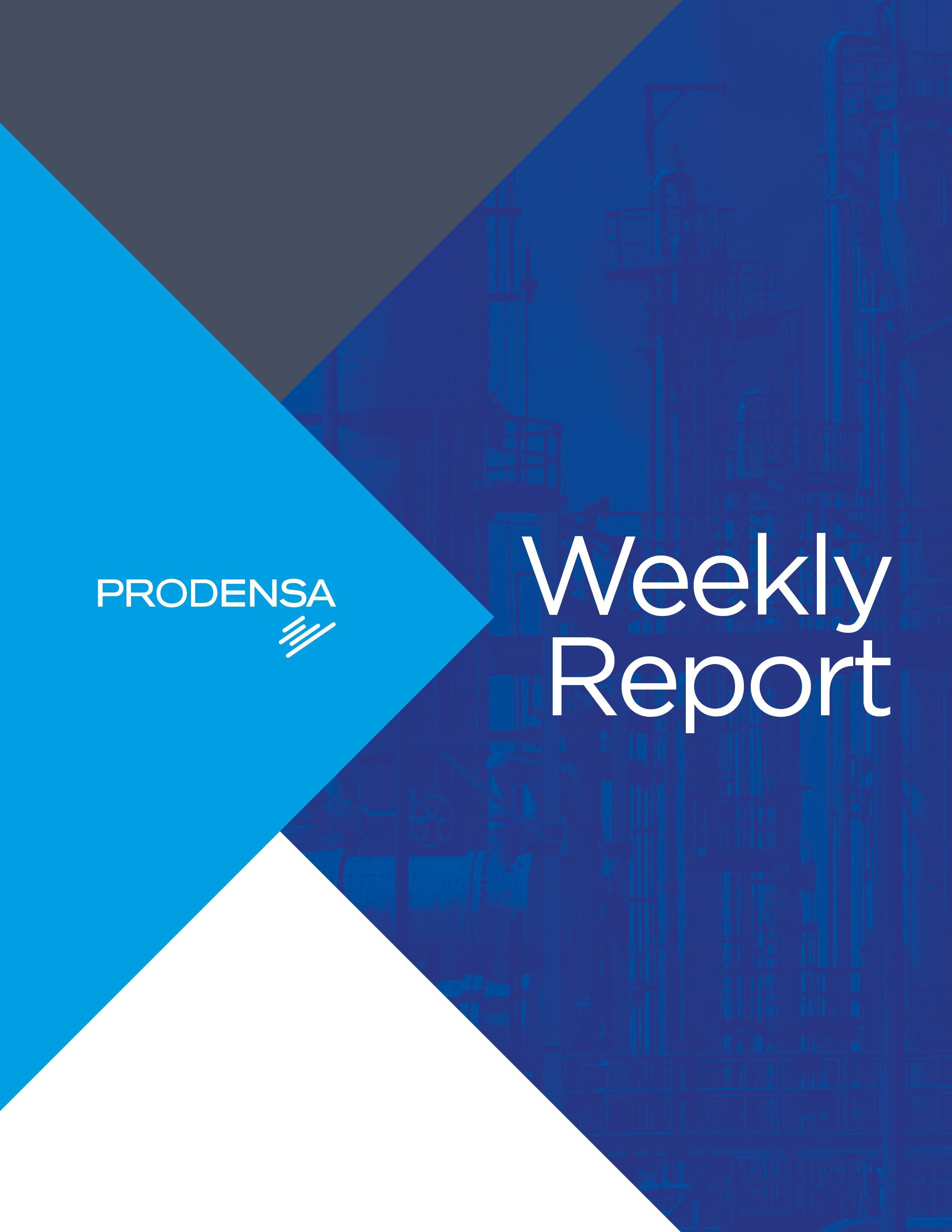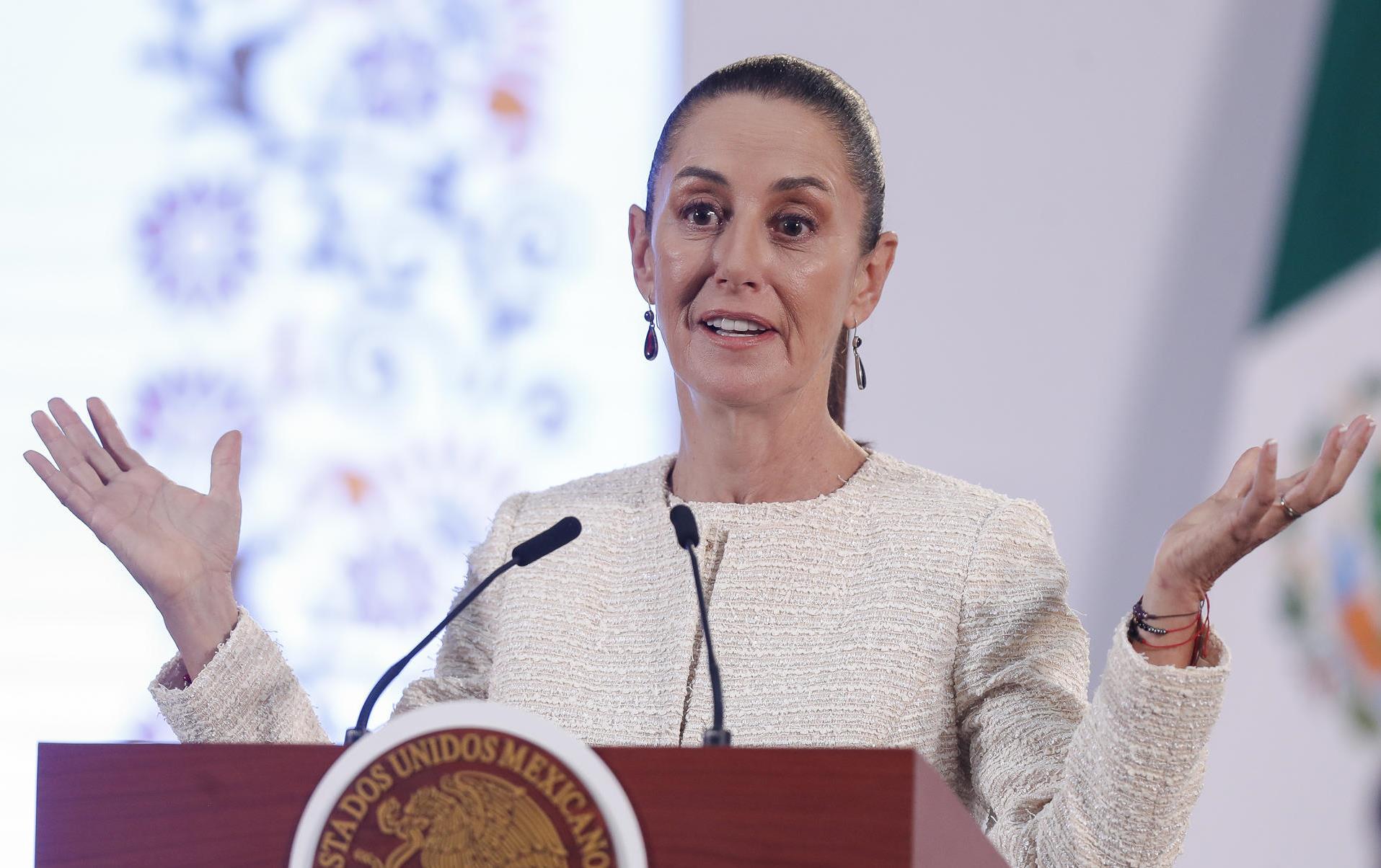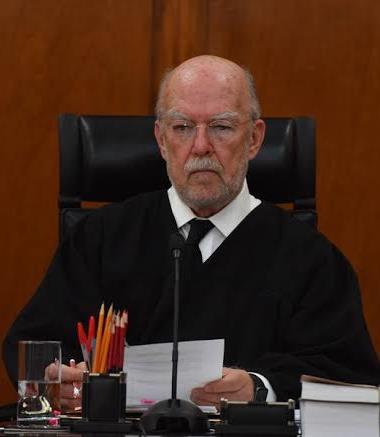
October 26 – November 1, 2024


October 26 – November 1, 2024
Mexico recently passed the “constitutional supremacy” reform, approved by Congress and 17 state congresses, altering Articles 105 and 107 to limit judicial challenges against constitutional amendments This reform effectively blocks the use of amparos (injunctions) and other constitutional controversies against future constitutional changes, strengthening the legislative branch’s control over constitutional modifications Advocates, including President Claudia Sheinbaum, argue that this reform mirrors 2013 amendments by PRI and PAN parties, which similarly restricted amparos to support energy sector privatizations. Sheinbaum contends that the reform reaffirms state ownership of resources like Pemex and CFE, symbolizing a return of public control over energy
The opposition, however, views this reform as a fundamental threat to the separation of powers, arguing it erodes the judiciary’s ability to check legislative actions, potentially diminishing judicial independence. Critics displayed symbols like gravestones during congressional debates, claiming the reform signals the “death” of the Constitution, rule of law, and democracy The reform’s retroactive application further prevents court-initiated challenges to previously controversial reforms, notably those affecting the judicial branch. With its passage, only Congress and state legislatures can modify the Constitution, effectively centralizing constitutional authority and intensifying debate over Mexico’s division of powers. This move underscores a growing political clash over judicial independence in the context of broader governmental restructuring
Source: MILENIO

Eight Supreme Court ministers in Mexico, including Chief Justice Norma Piña, have resigned in response to a judicial reform passed by the ruling Morena party This reform, which mandates popular election of future justices, has led the resigning ministers to express concerns over judicial independence and professionalism. The ministers submitted letters of resignation to the Senate, not as a show of agreement with the reform, but out of respect for the Constitution’s amendments Some, like Justice Ríos Farjat, declined their pensions as a statement of integrity, while others, like Justice González Alcántara, expressed disappointment in the current political climate, reflecting on unfulfilled hopes for rational and prudent governance Though they must serve another year per the reform, the resigning ministers emphasized the importance of an independent judiciary and rejected the notion of standing for election, believing it compromises the court’s role in safeguarding citizens' rights
Source: ANIMAL POLÍTICO

JUDICIAL REFORM TO BE DISCUSSED NEXT WEEK IN THE SUPREME COURT
On November 6, Mexico’s Supreme Court will review a proposal by Justice Juan Luis González Alcántara Carrancá regarding the recent judicial reform, which has sparked constitutional concerns The proposal supports certain reform measures, such as electing Supreme Court justices, dissolving judicial trust funds, and creating a Judicial Disciplinary Court, while rejecting the popular election of judges, magistrates, and “faceless judges” proposed for organized crime cases President Claudia Sheinbaum criticized the proposal, asserting that the Court lacks legislative powers to reverse constitutional reforms, which she argues were mandated by the people’s recent electoral choices. As the proposal proceeds, Sheinbaum reiterated that the reform adheres to the constitution and urged patience for the Court’s final decision
Although the Supreme Court could vote in favor of partially invalidating the Judicial Reform, President Claudia Sheinbaum's precedent of not respecting the judicial order regarding the Judicial Reform two weeks ago, suggests that she might not respect the decision once again
Source: REFORMA

The arrest of Ismael "El Mayo" Zambada has heightened tensions between the U S and Mexico, with both nations alleging irregularities in the operation Zambada was allegedly “kidnapped” by Joaquín Guzmán López, son of “El Chapo,” who, seeking reduced charges for himself and his brother Ovidio, facilitated Zambada’s capture by U S authorities Mexico’s Attorney General, Alejandro Gertz Manero, has demanded answers from the U.S., specifically regarding the identity and status of the plane’s pilot, the aircraft’s entry into Mexican airspace, and discrepancies in information sharing In response, U S Ambassador Ken Salazar defended the operation as a victory, underscoring extensive communications between both governments, including letters and meetings aimed at clarifying the case's details
The diplomatic strain reflects larger issues, with Mexican officials, including Claudia Sheinbaum, attributing recent violence in Sinaloa to U S -driven anti-cartel pressures Meanwhile, Salazar emphasized the need for mutual respect in the bilateral relationship, warning against assigning blame. U.S. Secretary of State Anthony Blinken also assured that no American agents participated in Zambada’s capture, though ambiguities remain unresolved As both countries approach critical political milestones, their handling of cartel-related violence and transborder crime remains an essential, if contentious, element in their alliance
Source: FORBES MÉXICO

BYD
BYD, has outpaced Tesla in quarterly revenue for the first time, reporting $28 24 billion in Q3 2024 24% higher than the previous year compared to Tesla’s $25.2 billion. BYD’s net profit reached 11.6 billion yuan ($1.6 billion), marking an 11 5% increase year-over-year, while Tesla’s profits also rose by 17%, supported by record-low production costs
In Mexico, BYD’s collaboration with Liverpool stores has significantly boosted its sales, reaching up to 14 vehicles sold daily. This partnership contributed to a total of 1,300 units sold in Q3 alone, with BYD’s 2024 Mexican sales totaling 3,200 units Meanwhile, international trade tensions have escalated as the European Union imposed tariffs on Chinese EVs, citing unfair competition, prompting China to contest the decision at the World Trade Organization
Source: LA JORNADA

Emilio Cadena, CEO of Prodensa and director of the U.S.-Mexico Foundation, emphasizes that Monterrey, Nuevo León, is a critical candidate for Tesla's expansion beyond California and Texas due to its strategic location, robust automotive ecosystem, and talented workforce As Tesla refines its product strategy in light of the upcoming U S elections, Cadena notes that the company, alongside other investors, is adopting a cautious approach, temporarily delaying certain projects until political uncertainties stabilize
Cadena argues that Mexico’s economic future depends on a long-term infrastructure plan, spanning logistics, telecommunications, and mobility over the next 40 years, to sustain nearshoring and attract foreign direct investment (FDI) He stresses that regulatory improvements, especially around security and trade facilitation, are essential for increasing Mexico’s attractiveness to foreign investors. Furthermore, Cadena calls for USMCA renegotiations to address emerging issues like artificial intelligence, cybersecurity, and energy policies, suggesting an open dialogue among North American partners to resolve trade barriers
Source: EL ECONOMISTA
Mexico has expressed concern over a U S proposal to ban Chinese software and hardware in vehicles, citing potential harm to its automotive industry The ban would include Chinese-brand vehicles assembled in Mexico, risking supply chain disruptions, higher production costs, and job losses Mexico argues the move may breach North American trade rules Major automakers and tech groups have requested more time for compliance, as the proposal aims for phased implementation starting in 2027.
Source: SCMP
Reform to Articles 2, 50, and 74 TER of the Federal Roads, Bridges, and Motor Transport Laws
Presented by: Sen Saúl Monreal Ávila (Zac - MORENA)
Purpose: Proposes that the Ministry of Infrastructure, Communications, and Transportation (SICT) will not grant permits for double-trailer or semitrailer cargo transport
Status: Published in the Parliamentary Gazette
National Law Regulating the Use of Artificial Intelligence
Presented by: Sen Juanita Guerra Mena (Mor - PVEM)
Purpose: Establishes the foundational principles, procedures, and coordination mechanisms among public, private, and social sectors for the management of Artificial Intelligence
Status: Published in the Parliamentary Gazette
Law for the Use of Artificial Intelligence and Personal Data Processing by Obligated Entities in Mexico City
Presented by: Congress of Mexico City
Purpose: Establishes principles and guidelines for the use of AI and personal data handling by public entities
Status: Turned to Commissions

Decree to Amend Section VIII of Article 127 of the Federal Labor Law
Presented by: Geovanna del Carmen Bañuelos De la Torre (MORENA)
Purpose: To prohibit setting maximum limits on profit-sharing for workers The minimum profit-sharing amount will be based on the average received by the worker over the last five years, always applying the amount most favorable to the worker.
Status: Presented to the plenary of the Senate
Initiative with Draft Decree to Amend Articles 170 of the Federal Labor Law and 50 of the General Law on the Rights of Girls, Boys, and Adolescents, Regarding Breastfeeding
Presented by: Rubén Ignacio Moreira Valdéz (PRI)
Purpose: To establish that working mothers will have, during the breastfeeding period of up to six months, two extraordinary breaks per day, each lasting half an hour, to feed their children in designated breastfeeding rooms or lactation areas provided by the companies.
Status: Presented to the plenary of the Chamber of Deputies
General Law on the Promotion of Circular Economy
Presented by: Sen Karen Castrejón Trujillo (CDMX - PVEM)
Purpose: Establishes national policy principles for promoting a circular economy, including a National Strategy for Circular Economy with clear objectives and indicators Encourages sustainable production and consumption, reducing food waste, and incentivizing companies to adhere to circular economy standards
Status: Turned to Comissions
Initiative with Draft Decree to Amend Various Provisions of Articles 153-A, 153-B, and 153-M of the Federal Labor Law
Presented by: Senator Virgilio Mendoza Amezcua (PVEM)
Purpose: To specify that the training employers are required to provide to workers must be technical or professional and included in collective bargaining agreements
Status: Presented to the plenary of the Senate
